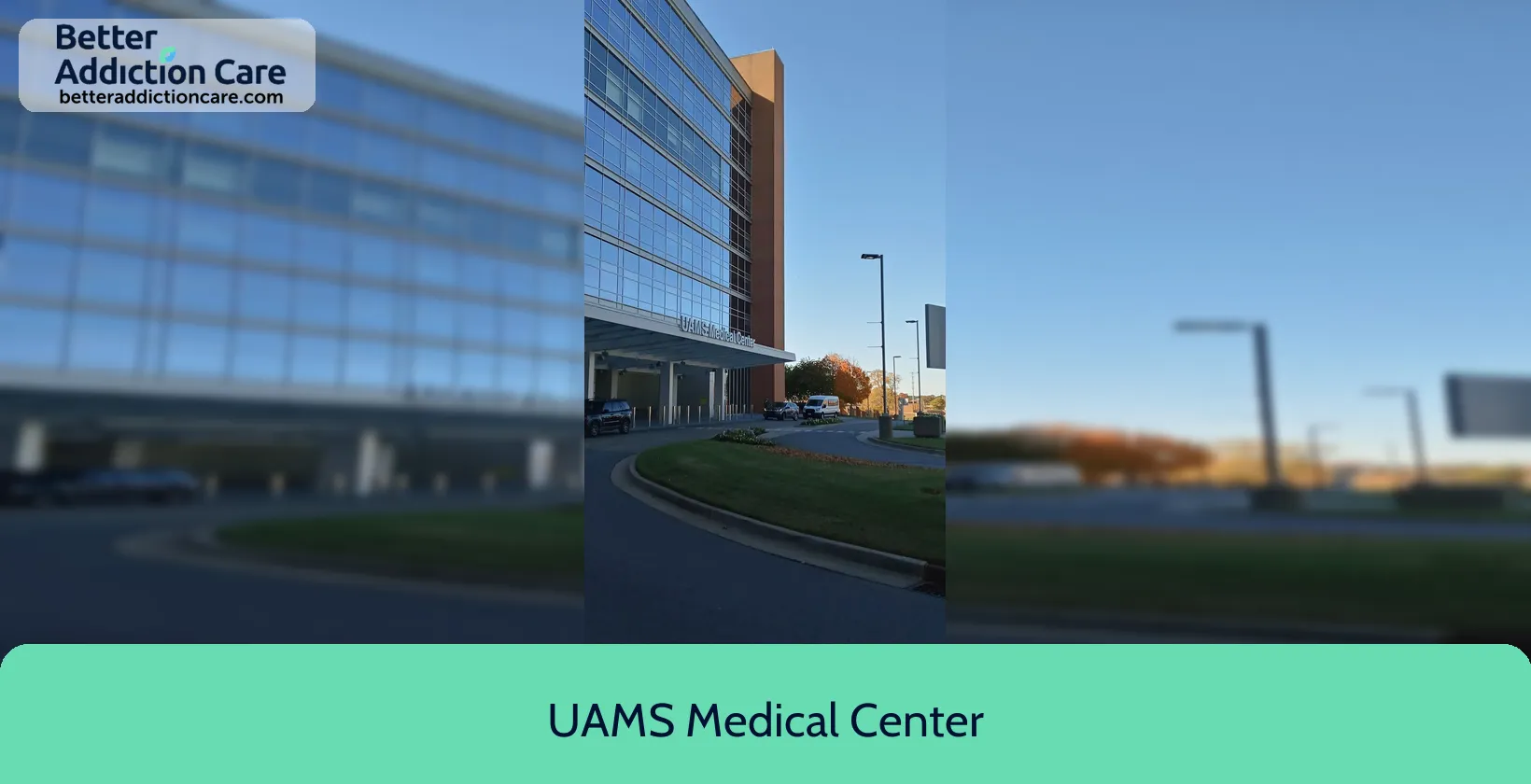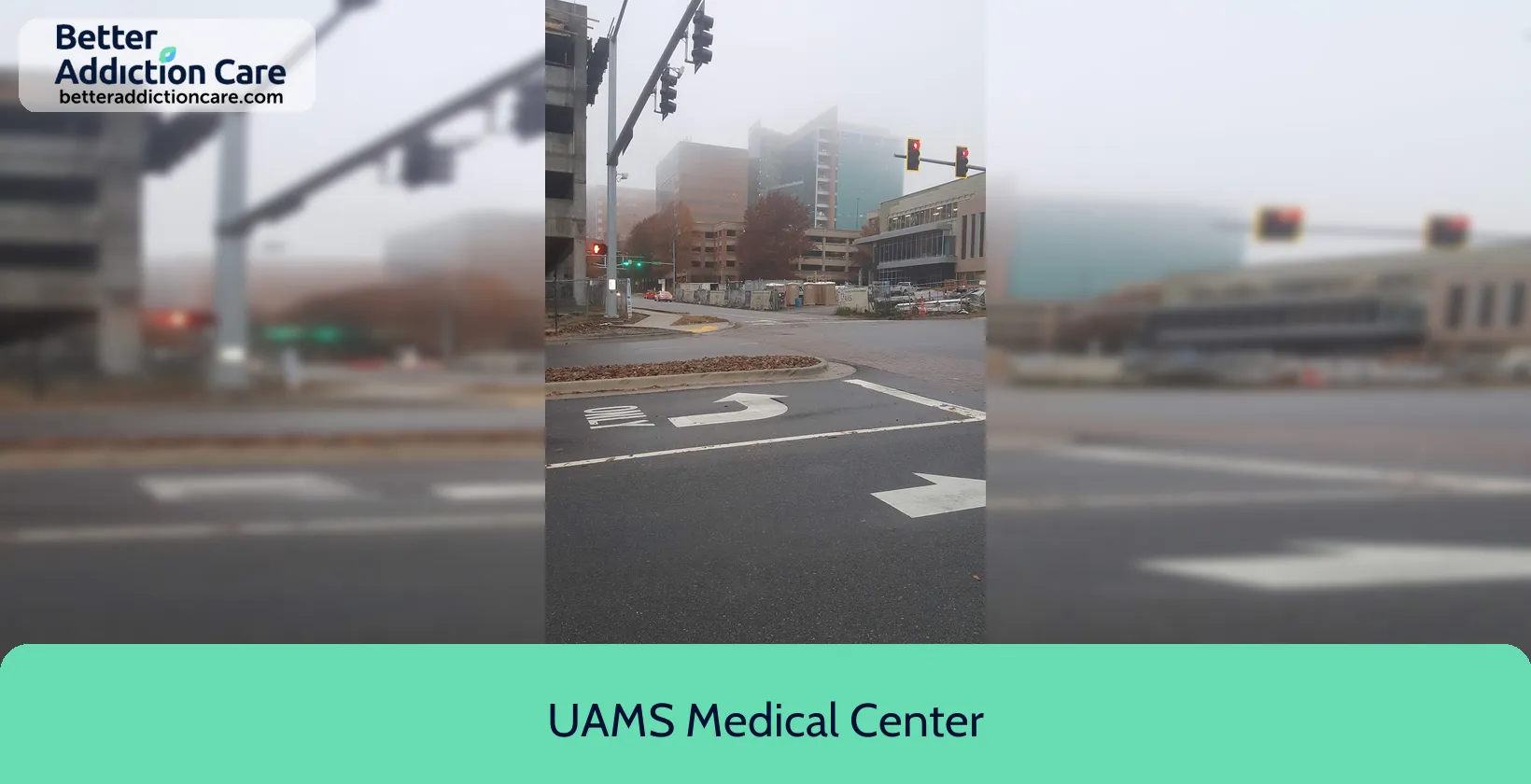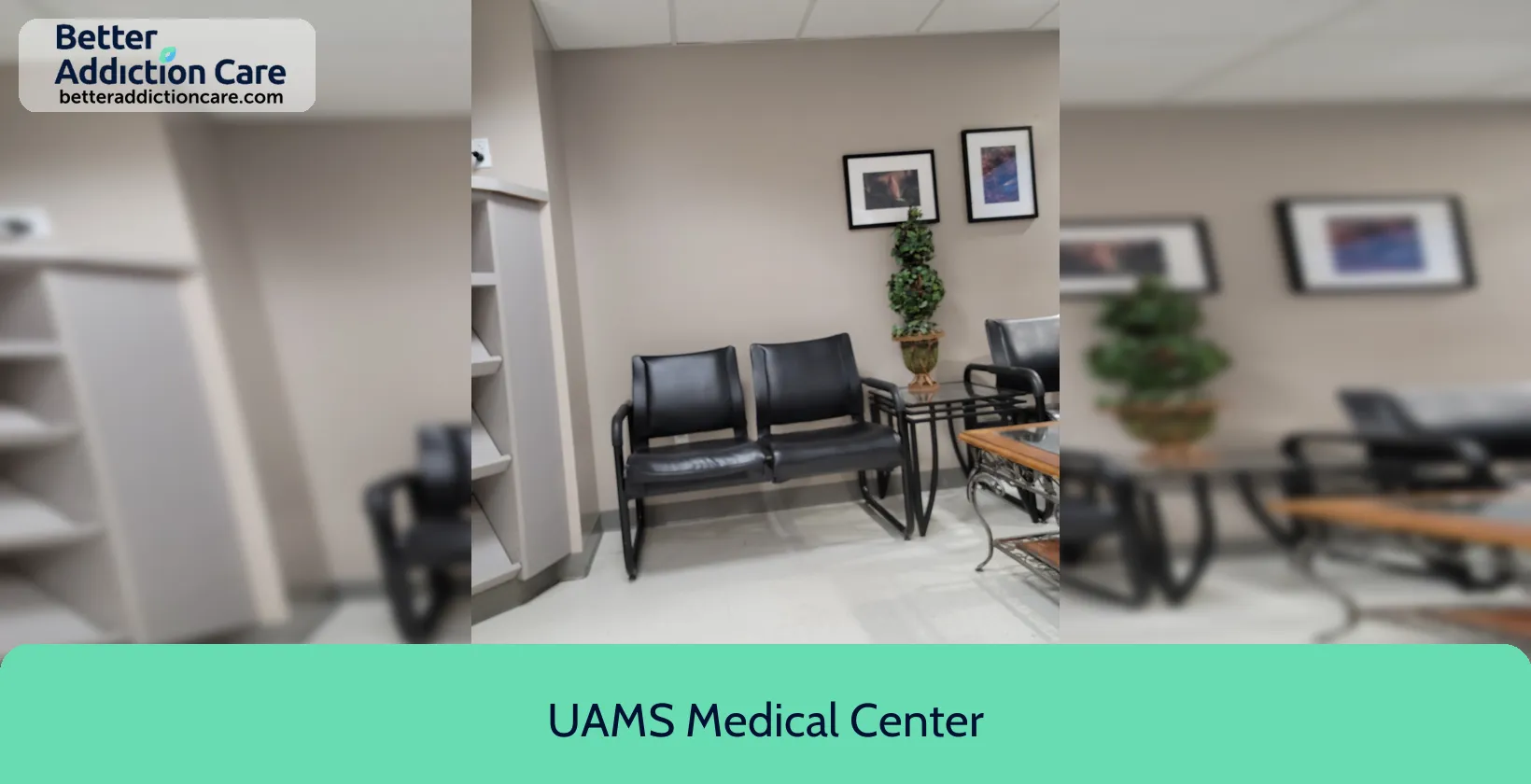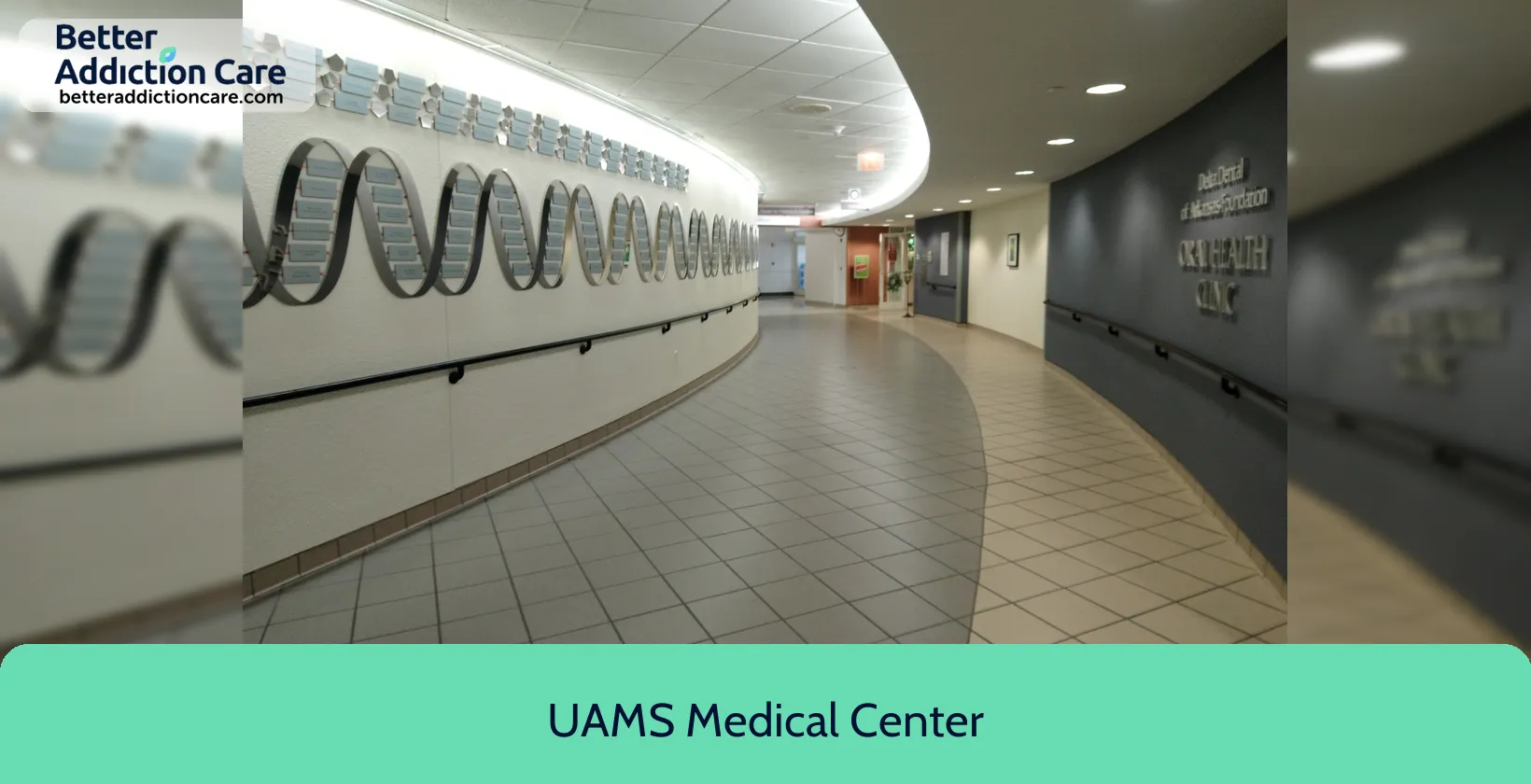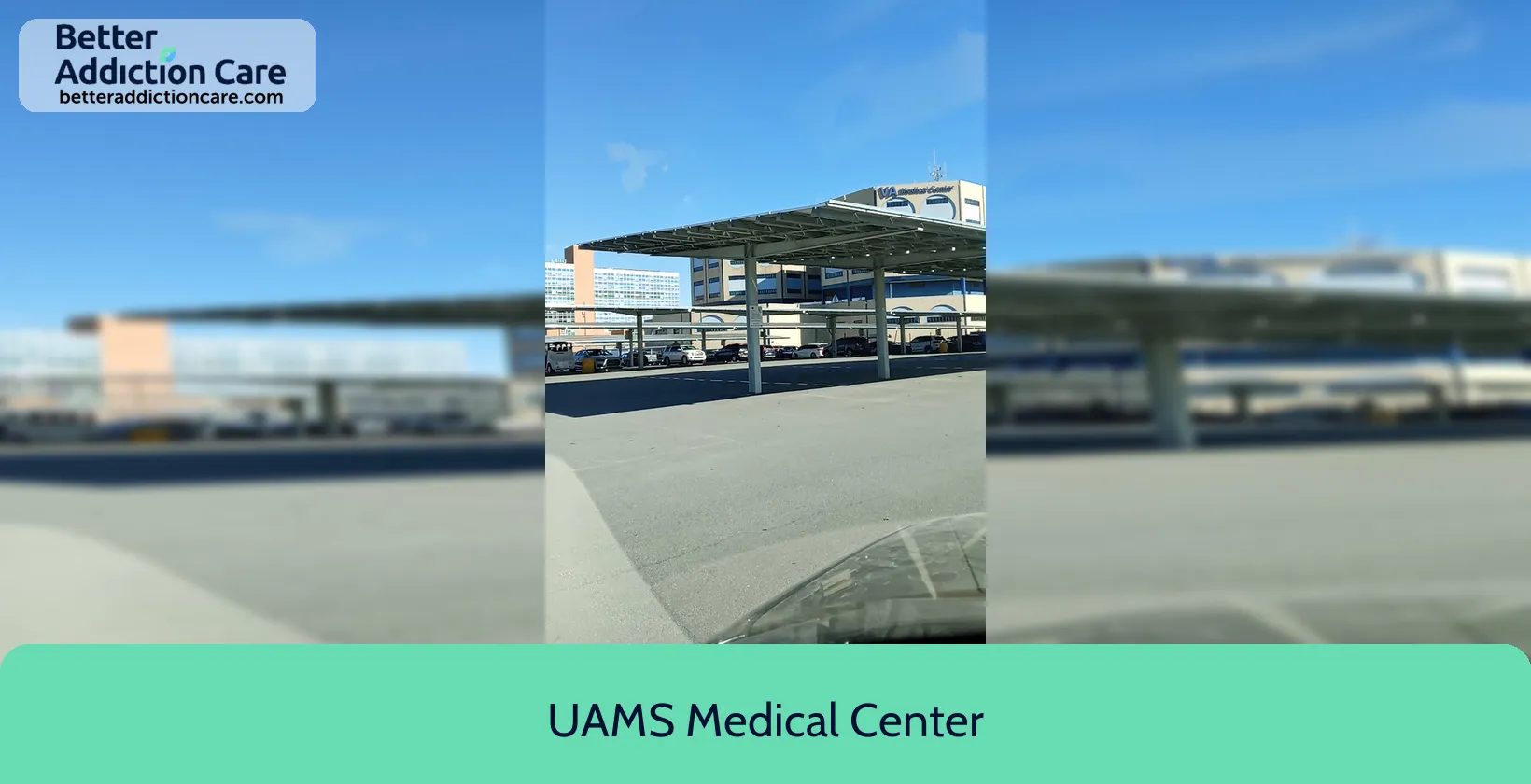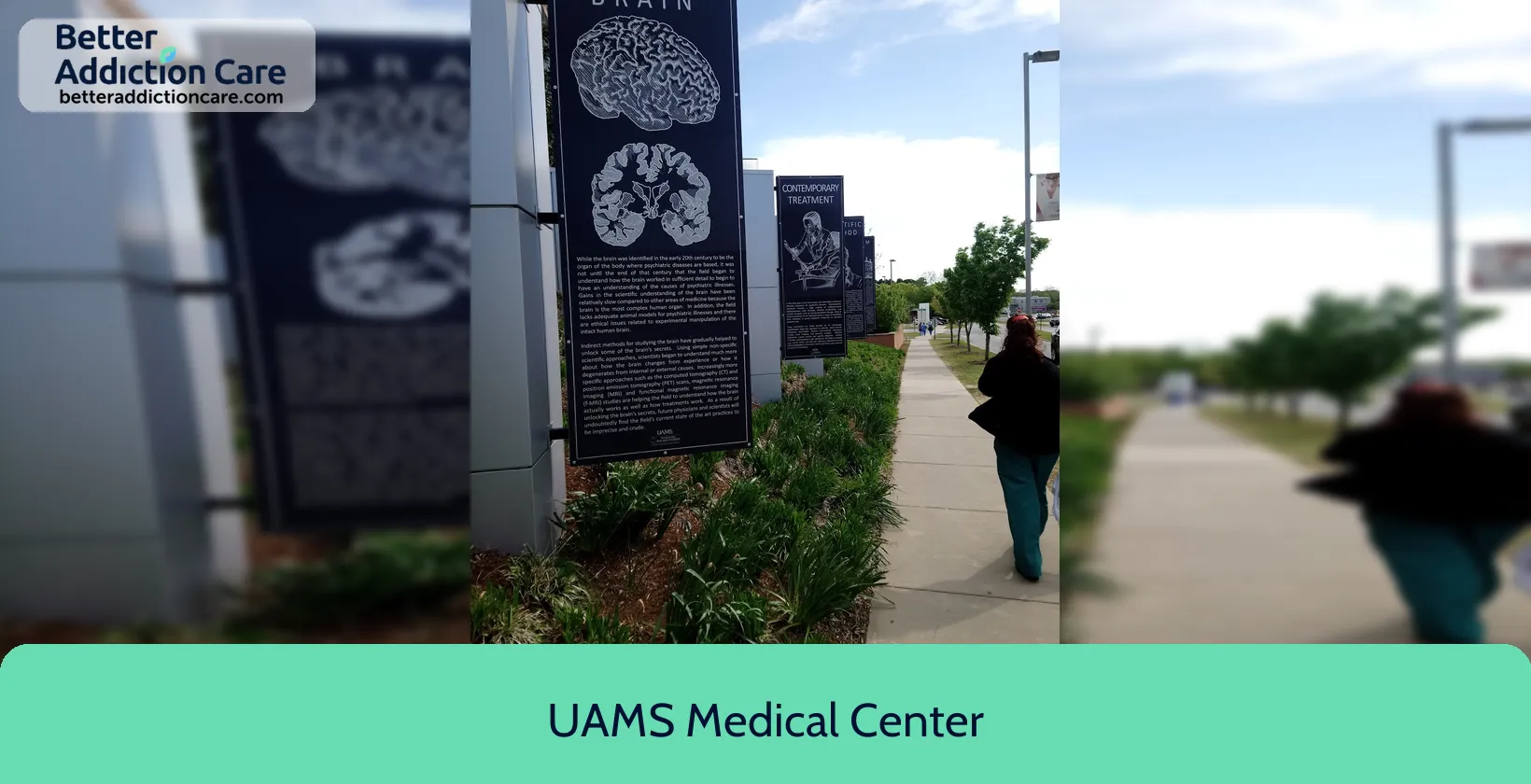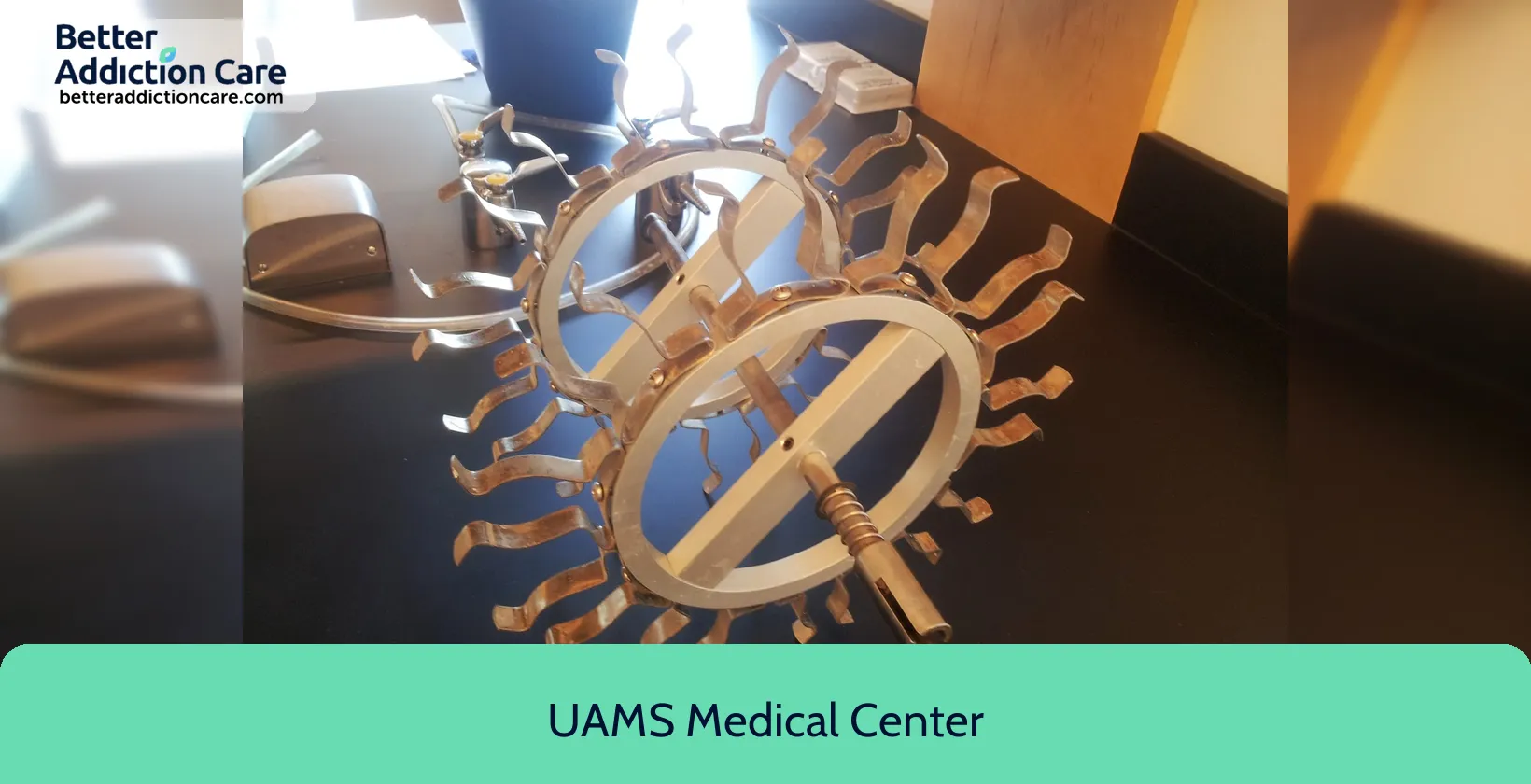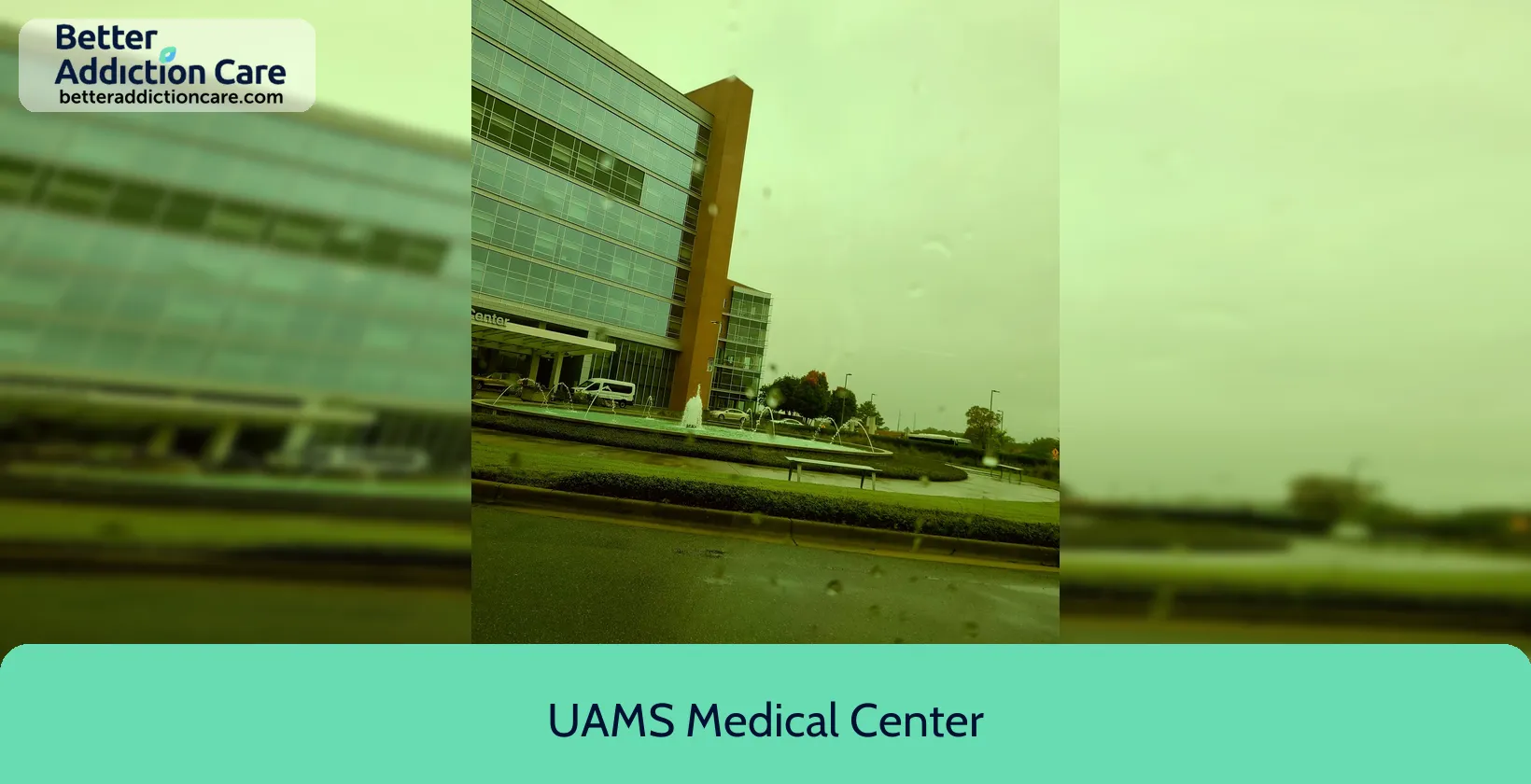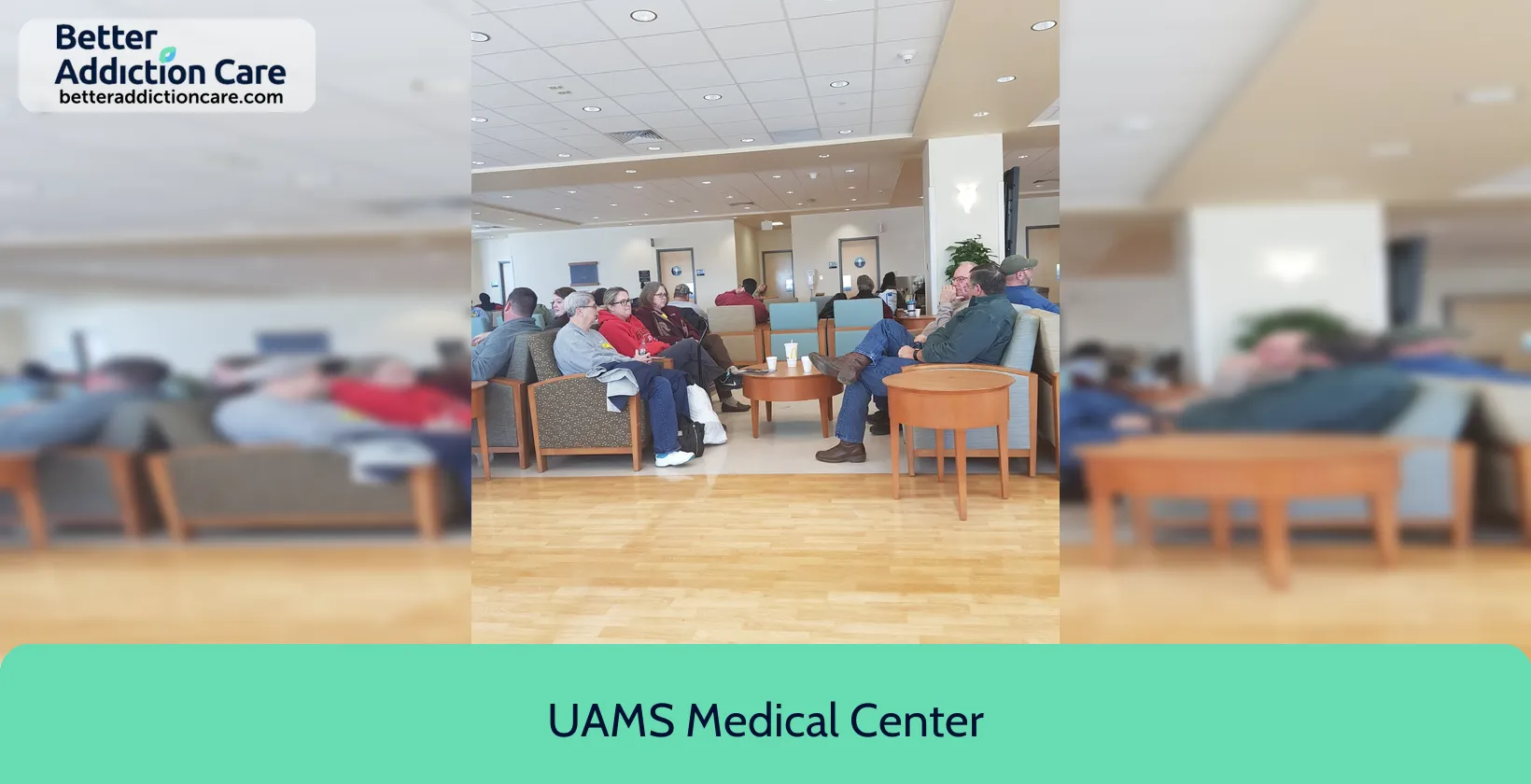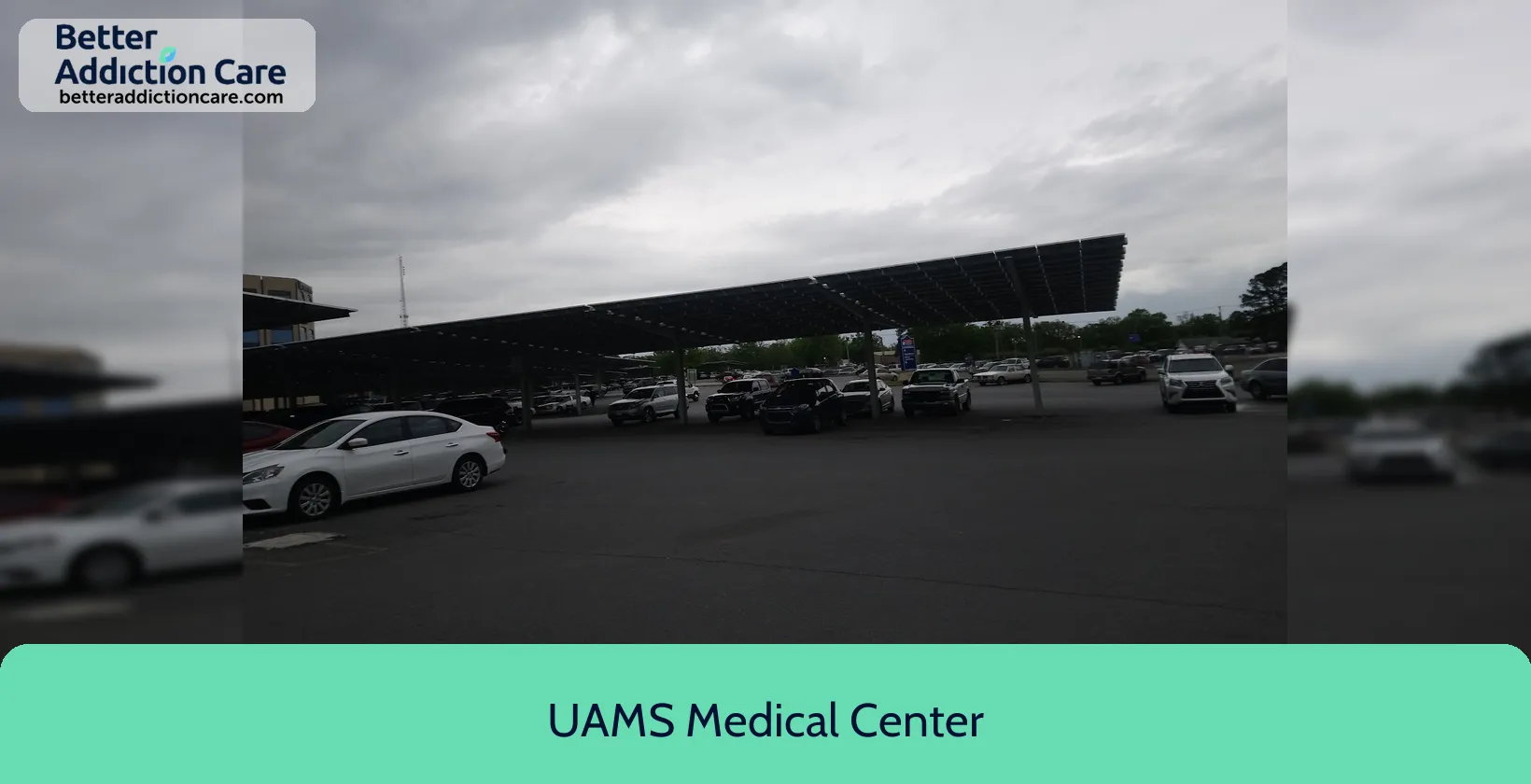UAMS Medical Center
Overview
UAMS Medical Center is a mental health treatment center for people seeking treatment near Pulaski County. As part of their treatment modalities for recovery, UAMS Medical Center provides couples/family therapy, group counseling, and cognitive behavioral therapy during treatment. UAMS Medical Center is located in Little Rock, Arkansas, accepting cash or self-payment for treatment.
UAMS Medical Center at a Glance
Payment Options
- Cash or self-payment
- Medicaid
- Medicare
- State-financed health insurance plan other than Medicaid
- Private health insurance
Assessments
- Screening for tobacco use
- Comprehensive mental health assessment
- Comprehensive substance use assessment
Age Groups
- Seniors or older adults
- Young adults
- Adults
- Seniors
Ancillary Services
- Intensive case management
- Court-ordered outpatient treatment
- Family psychoeducation
- Suicide prevention services
Highlights About UAMS Medical Center
6.71/10
With an overall rating of 6.71/10, this facility has following balanced range of services. Alcohol Rehabilitation: 8.00/10, Drug Rehab and Detox: 6.00/10, Insurance and Payments: 6.00/10, Treatment Options: 6.85/10.-
Alcohol Rehabilitation 8.00
-
Treatment Options 6.85
-
Drug Rehab and Detox 6.00
-
Insurance and Payments 6.00
Treatment At UAMS Medical Center
Treatment Conditions
- Alcoholism
- Mental health treatment
- Substance use treatment
- Co-occurring Disorders
Care Levels
- Hospital inpatient/24-hour hospital inpatient
- Outpatient
Treatment Modalities
- Couples/family therapy
- Group counseling
- Cognitive behavioral therapy
- Dialectical behavior therapy
- Integrated Mental and Substance Use Disorder treatment
Ancillary Services
Languages
- Sign language services for the deaf and hard of hearing
Special Programs
- Clients with co-occurring mental and substance use disorders
- Veterans
- Active duty military
- Members of military families
- Clients with HIV or AIDS
Get Help Now
Common Questions About UAMS Medical Center
Contact Information
Other Facilities in Little Rock
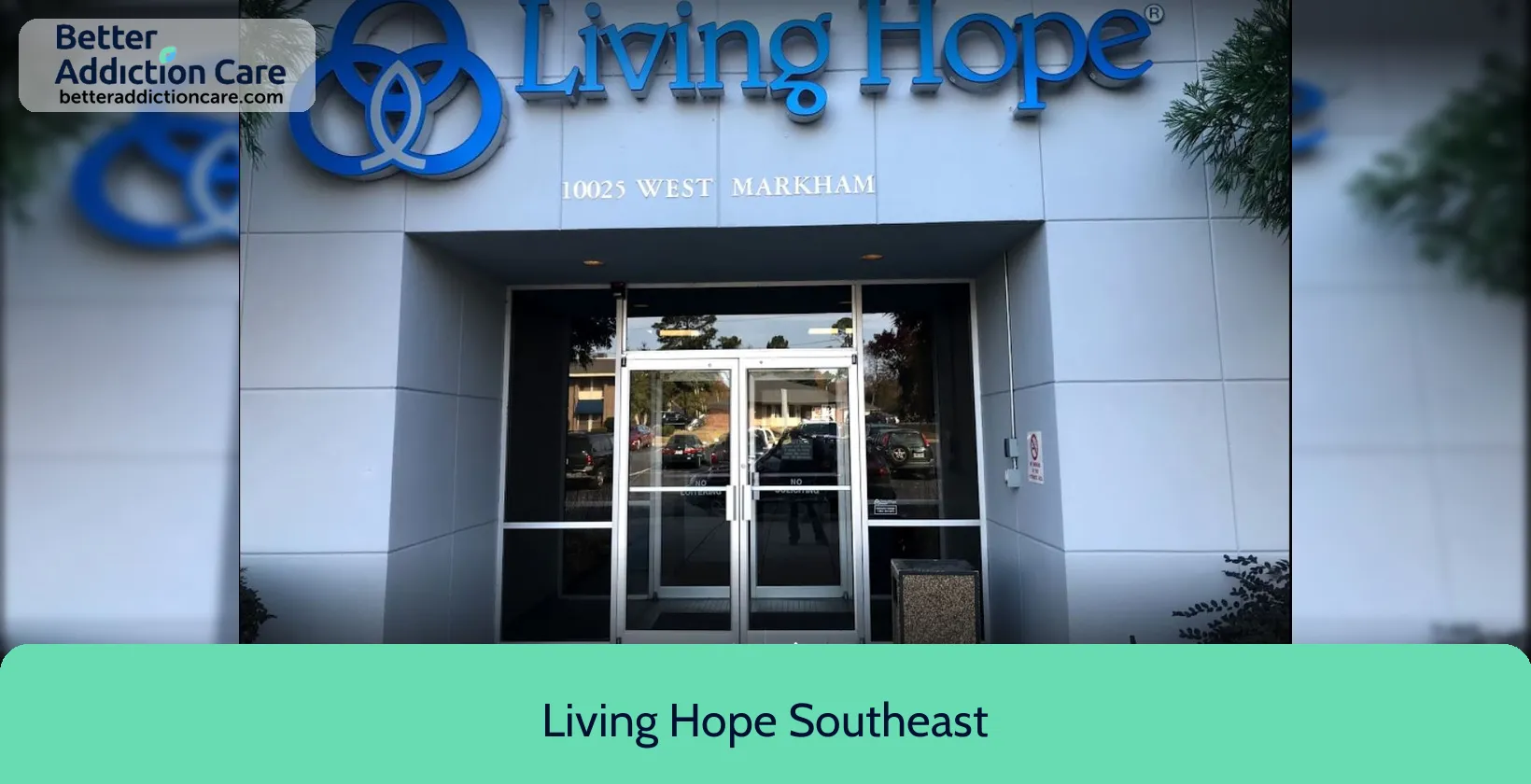
6.74
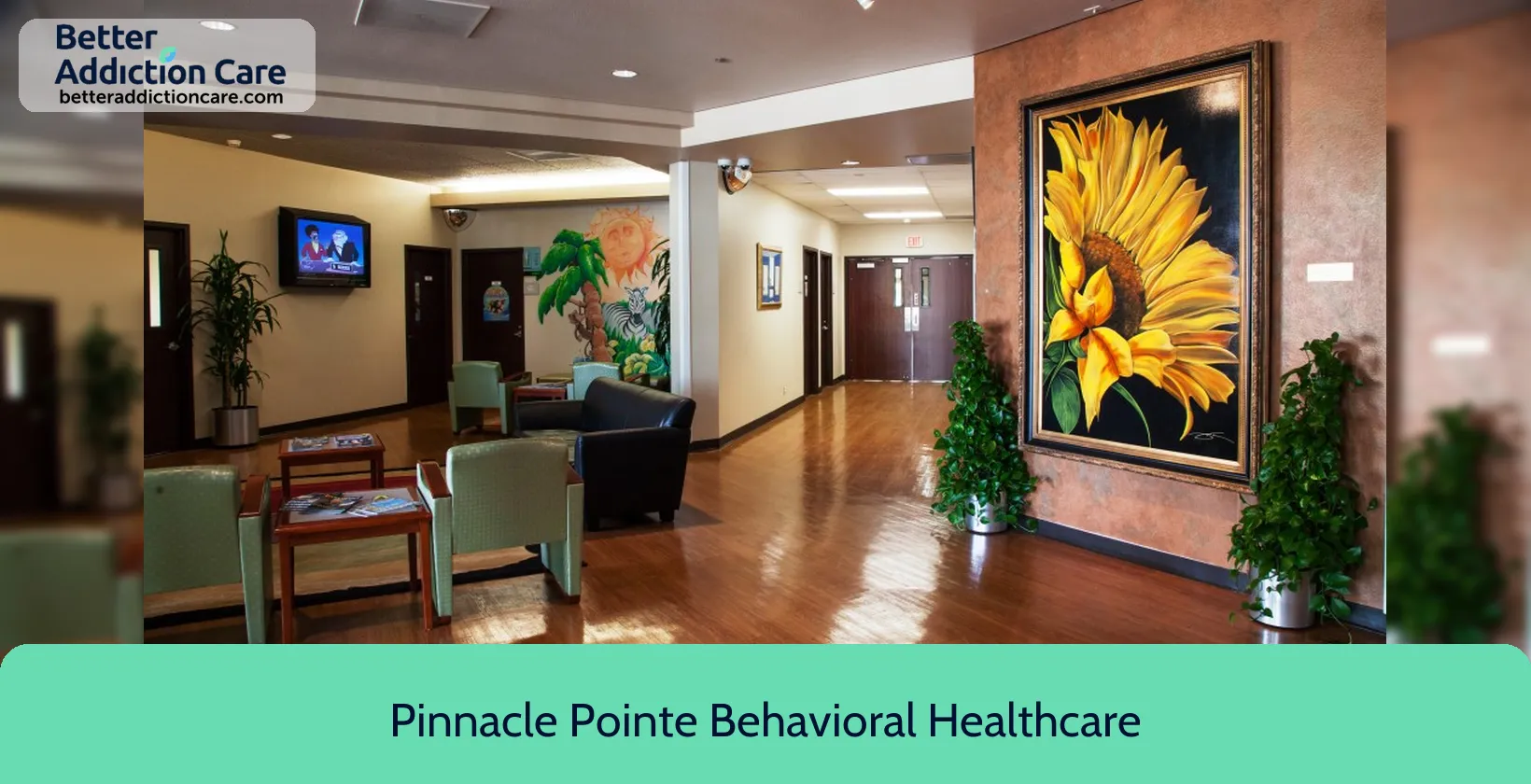
6.96

6.68
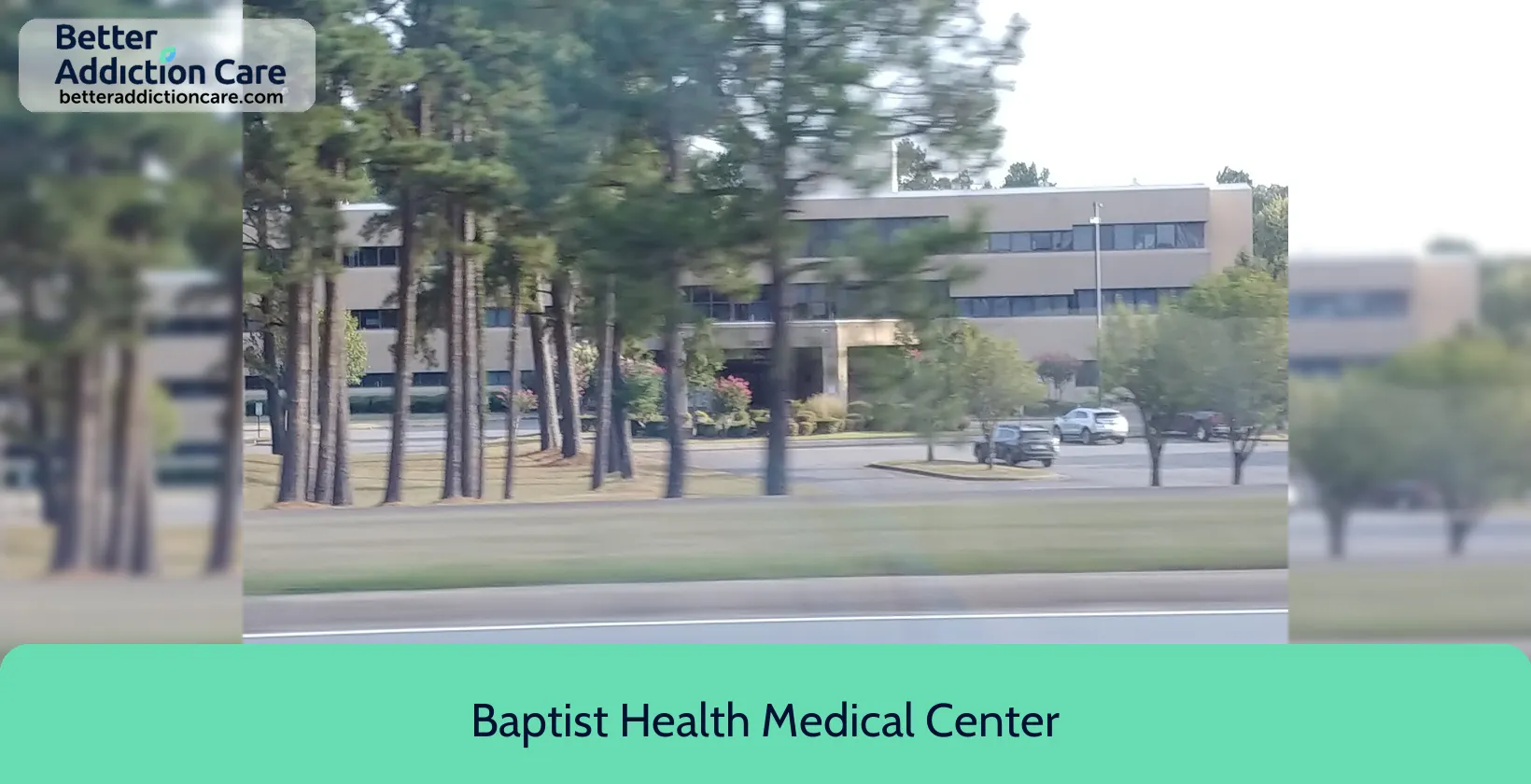
6.65
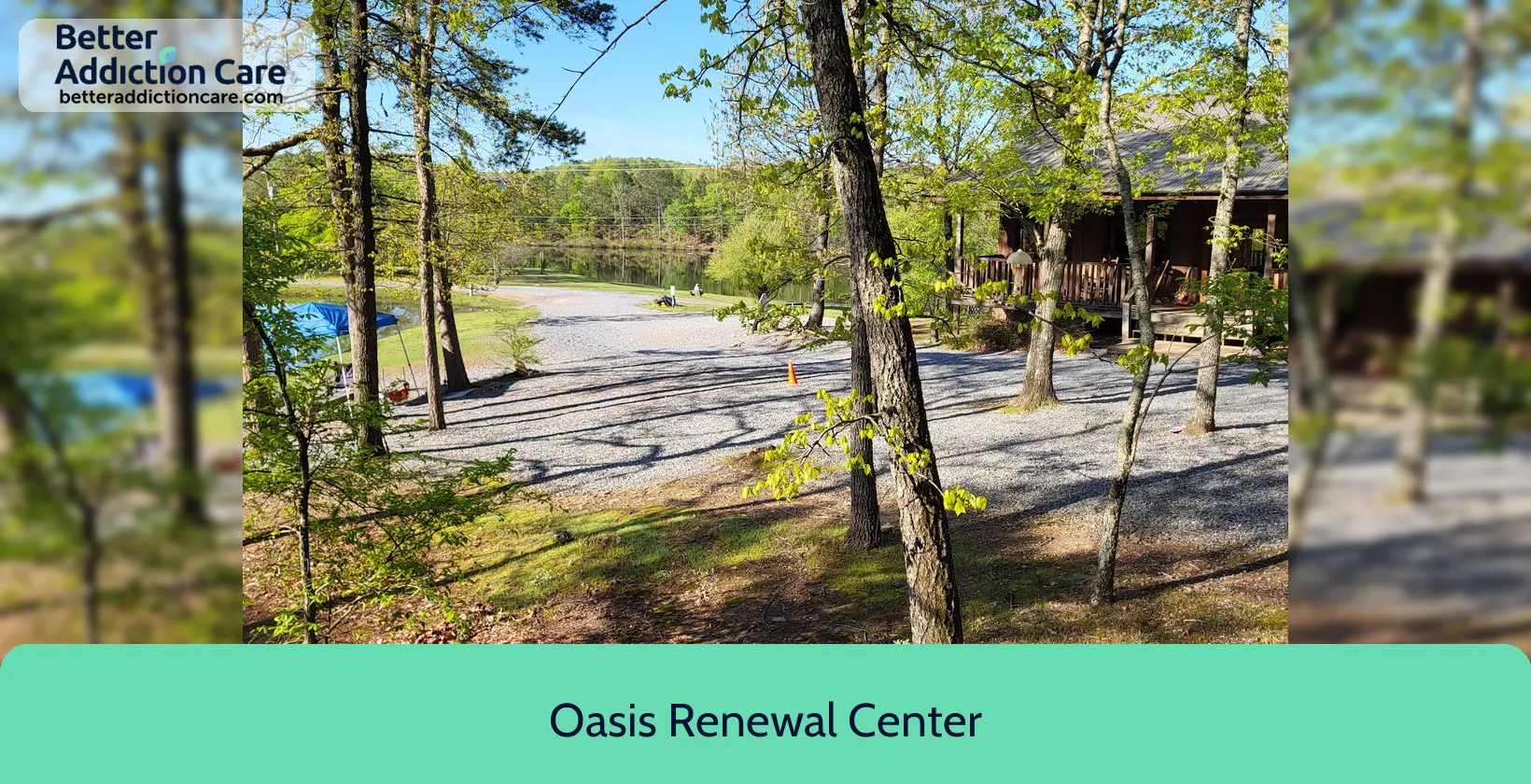
7.32
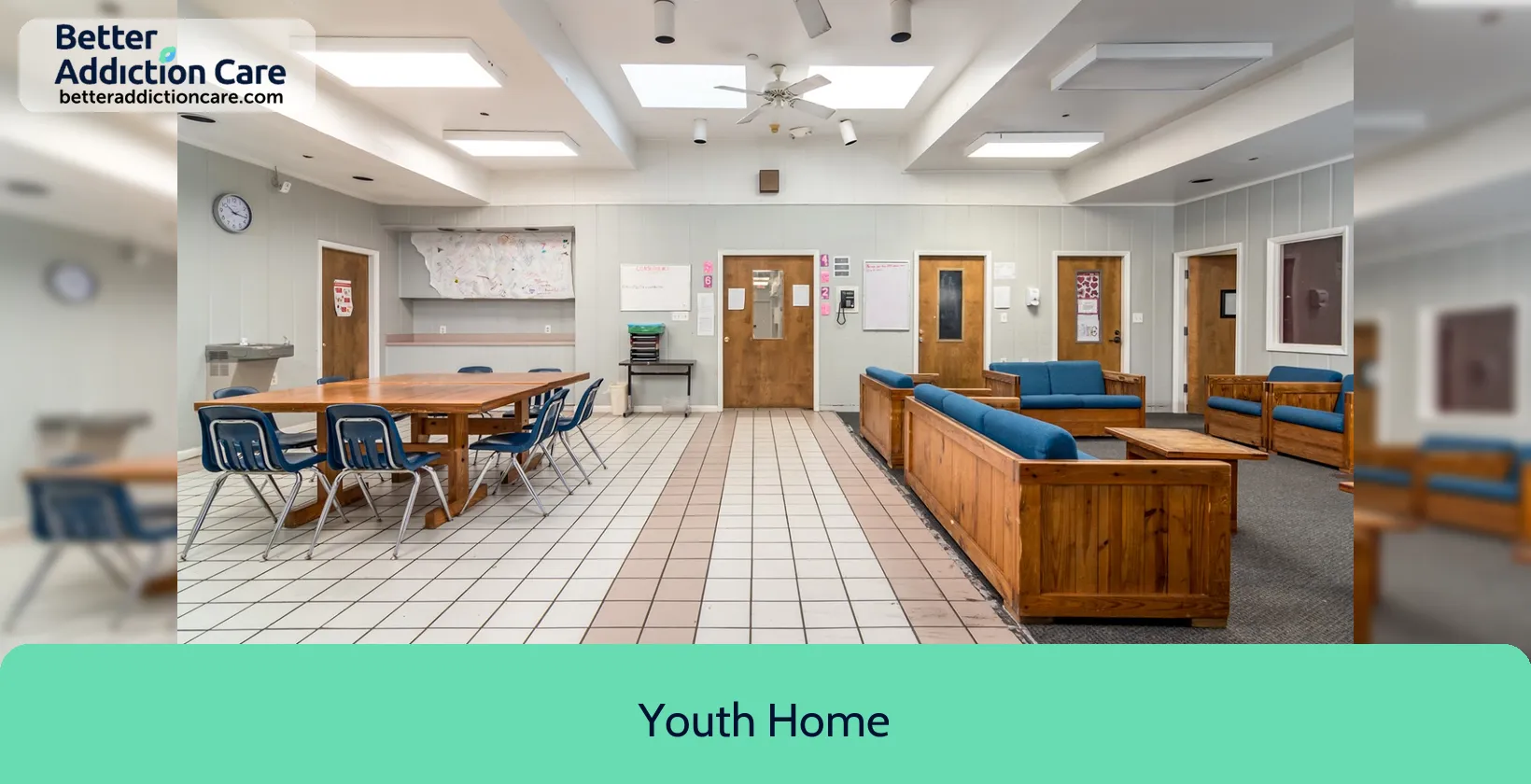
6.86
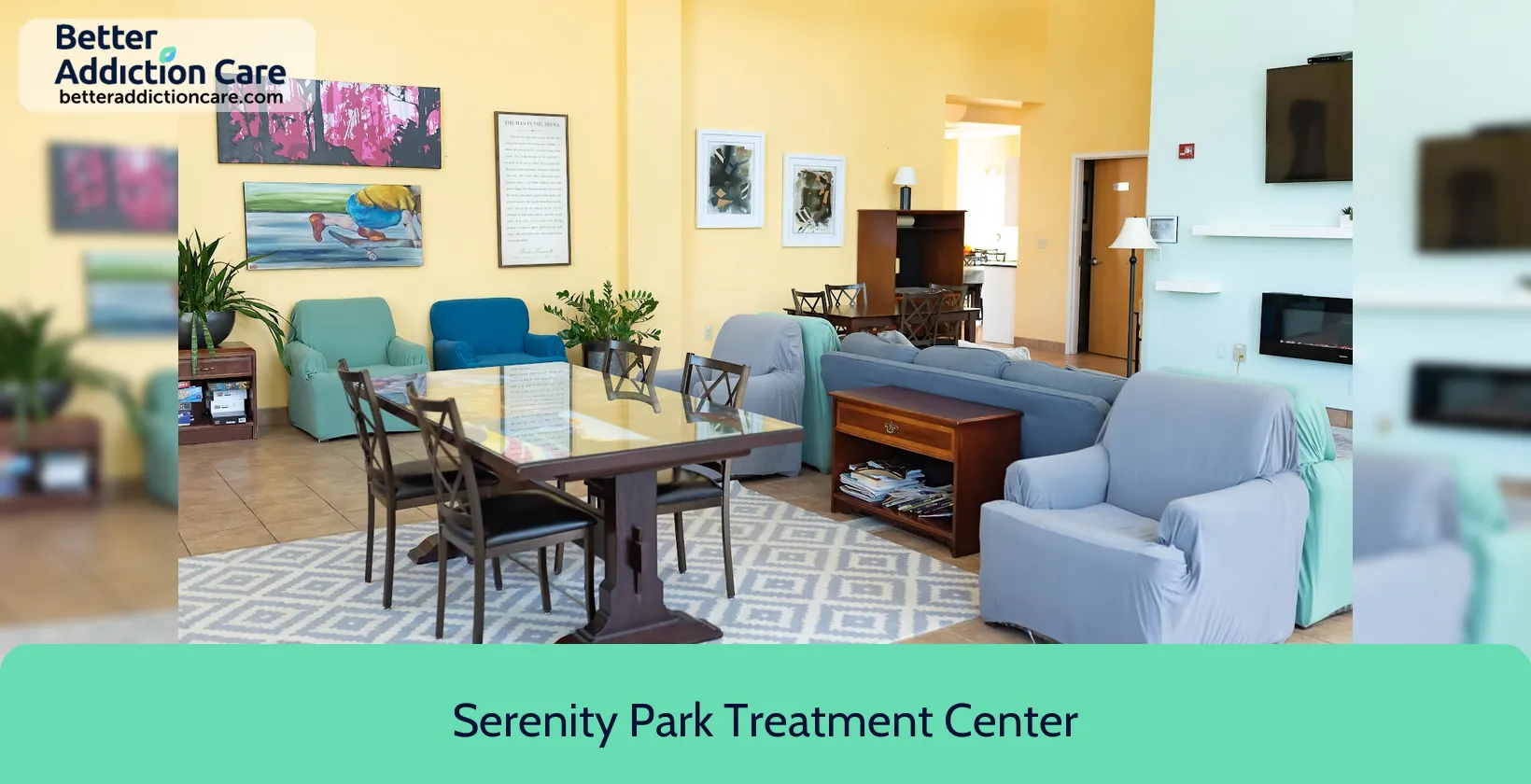
6.96
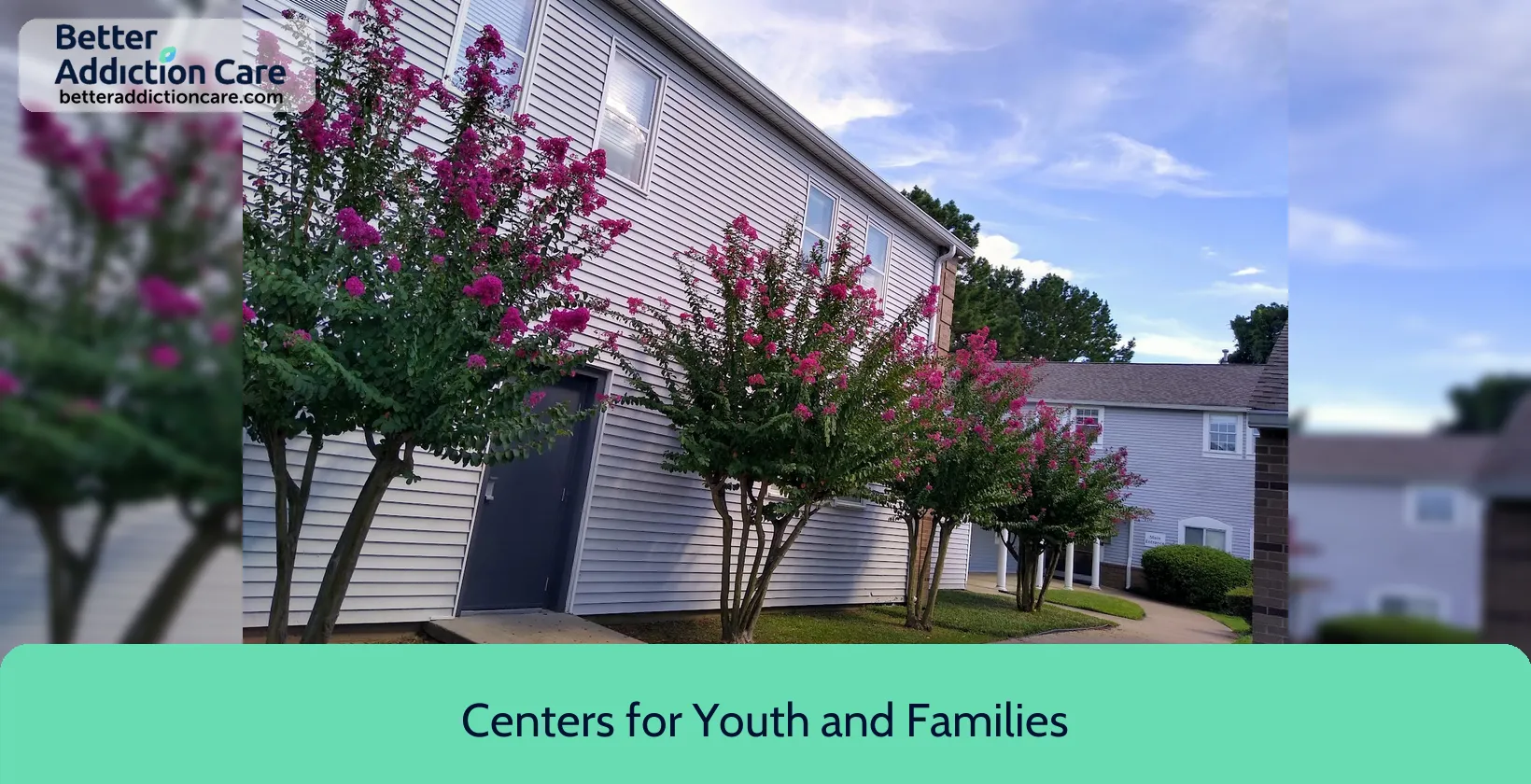
6.76
Browse rehab centers near Little Rock and in other cities across Arkansas
DISCLAIMER: The facility name, logo and brand are the property and registered trademarks of Centers for Youth and Families - Independent Living, and are being used for identification and informational purposes only. Use of these names, logos and brands shall not imply endorsement. BetterAddictionCare.com is not affiliated with or sponsored by Centers for Youth and Families - Independent Living.
